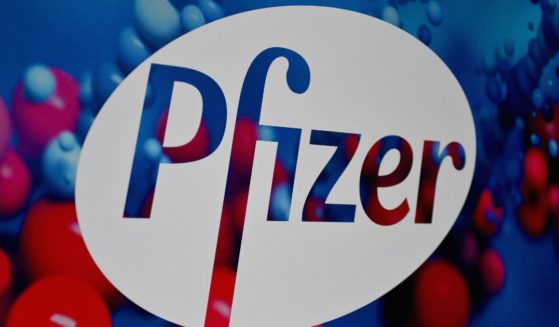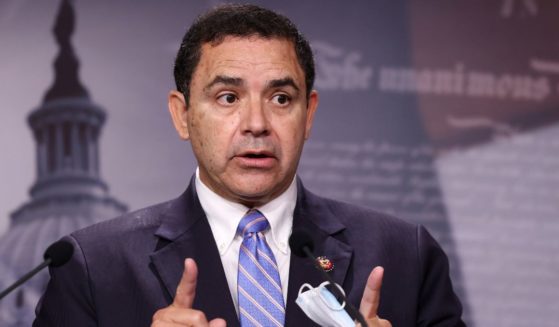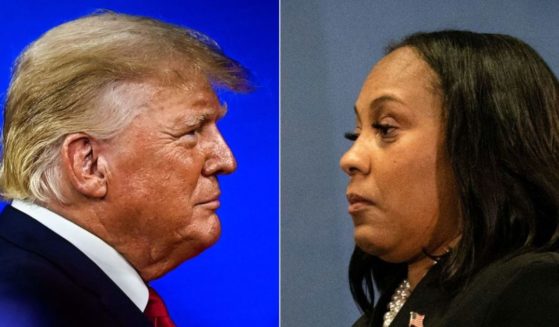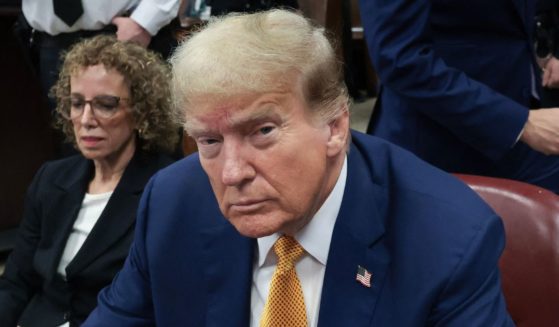'Shark Tank' Star Refuses to Sugarcoat Downgrading of US Credit Rating: 'It's Bad'
Too much spending and too little leadership led Fitch Ratings on Tuesday to downgrade the federal government’s credit rating, leading “Shark Tank” star Kevin O’Leary to comment, “It’s bad.”
Fitch Ratings set the long-term foreign currency issuer default rating to AA+, down from AAA, according to CNBC.
“The repeated debt-limit, political standoffs and last-minute resolutions have eroded confidence in fiscal management,” Fitch said.
“In Fitch’s view, there has been a steady deterioration in standards of governance over the last 20 years, including on fiscal and debt matters, notwithstanding the June bipartisan agreement to suspend the debt limit until January 2025.”
Fitch said the federal deficit will hit 6.3 percent of gross domestic product this year, up from 3.7 percent last year.
“Cuts to non-defense discretionary spending (15 percent of total federal spending) as agreed in the Fiscal Responsibility Act offer only a modest improvement to the medium-term fiscal outlook,” the agency said.
Bidenomics is working so well the US just lost our AAA credit rating 🫠
— Ty’s Tough Talk🇺🇸🏳️🌈 (@toughtalkty) August 2, 2023
O’Leary, the chairman of O’Leary Ventures, said the move is trouble for all Americans, according to Fox News.
“There is no way to sugarcoat this at all. It’s bad. And I’ll tell you how you measure it’s bad. Basically, when you downgrade the U.S. economy, which is what this downgrading is, you are losing a little faith in the U.S. dollar and the U.S. Treasury bill,” he said.
“Most sovereign funds keep the majority of their liquidity in U.S. dollars. That got hurt 24 hours ago because now you start to ask yourself, ‘Well, where is this going? A downgrade from AAA to AA, does it go to single?’ Now, if you’re a sovereign wealth fund, you start to put that in your mind.”
O’Leary said there is a price Americans will pay.
“And the bottom line for you and me is the cost of capital goes up. In other words, what it costs for us to borrow money to fund the government and deficit goes up. No sugarcoating that,” he said.
“The kitchen table in America, your car loan just went up from five to somewhere between seven and nine percent. That’s not going to help. So the cost of your loan and your borrowing and your mortgage going up, period,” he continued.
The downgrade of our credit rating is proof positive that the negative economic trajectory caused by spend-thirsty legislators is leading our Nation and the American People to ruin. We MUST change the spending addiction in DC & plot a new course toward fiscal literacy and sanity.
— RepScottPerry (@RepScottPerry) August 2, 2023
O’Leary cited the CHIPS Act and the Inflation Reduction Act as a one-two that helped knock down America’s credit rating.
“We’re printing billions of dollars. Government claims it has merit. It’s important to do this. But at the same time, that’s just a lot of spending, and that increases the deficit. And that’s why Finch did this. They downgraded it,” he explained.
“And I wouldn’t say it was the two bills that caused the camel’s back to be broken, but it was enough for them to say, ‘OK, I’ve seen enough now for me and you or anybody.'”
The downgrade sent ripples through Wall Street on Wednesday. The Dow Jones Industrial Average closed down 348 points, according to CNN.
The U.S. Credit Rating Has Been Downgraded from AAA to AA+ — Fitch Cites an ‘Erosion of Governance’
“This is not going to be a good look for Biden and his team. This really has the potential to put a really strong dent in their message that the economy is doing much better now… pic.twitter.com/Wtv1VJpcUq
— Chief Nerd (@TheChiefNerd) August 2, 2023
Despite that, one commentator said Washinton’s course will remain set on full spending ahead.
“Instead of effectuating change, or fiscal discipline, our base case expectation is that Fitch will be pilloried by most members of Congress,” said Henrietta Treyz, director of macroeconomic policy research at Veda Partners, according to The New York Times.
“It will not yield either deficit reduction, tax increases, reductions in military spending, entitlement reform or a change to the 12 appropriations bills that have already moved with substantial bipartisan support in the U.S. Senate.”
Truth and Accuracy
We are committed to truth and accuracy in all of our journalism. Read our editorial standards.












